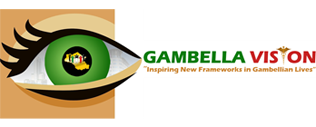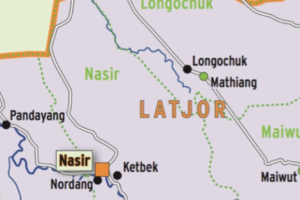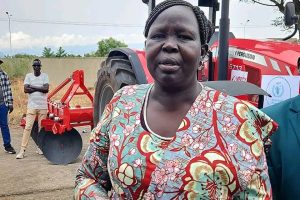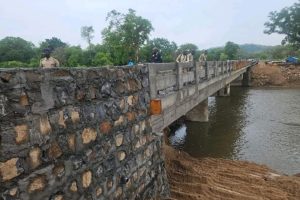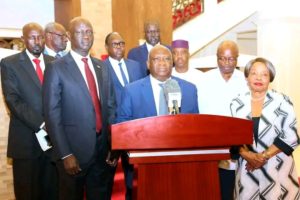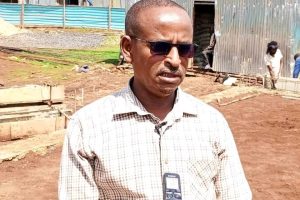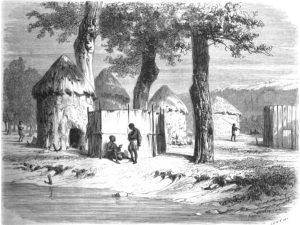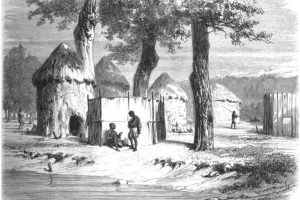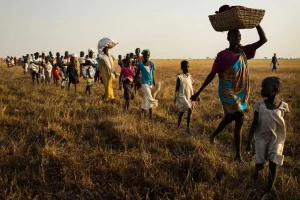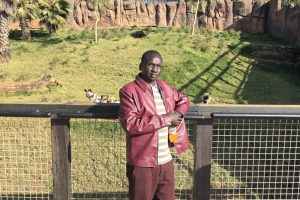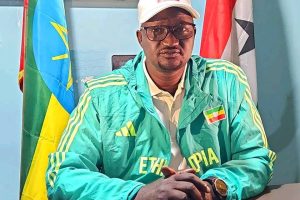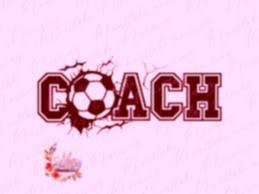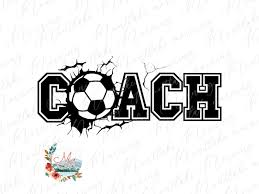In this opinion piece and well supported by reputable, I am going to discuss the Nuer community and present an analysis based on our strengths, weaknesses, opportunities, and threats (SWOT).
The recent social media response to the arrest of Dr. Riek Machar Teny Thurgon (Guandit) has offered deep insights into who we are as a Nuer people. While this knowledge has always been present, it has been significantly reinforced through this event.
Even among his staunchest critics—those who previously vowed never to support him—many have
shifted their stance, now ready to confront any external threat against him. This shift in attitudes highlights an important truth: despite our internal divisions, we have a collective identity that emerges during moments of crisis (Hutchinson, 1996).
For those of us who envision a more united and progressive Nuer community, understanding our strengths, weaknesses, opportunities, and threats is essential. Recognizing these factors will help us not only harness our potential but also address our challenges effectively. I will discuss how our unity in crisis, strong cultural identity, resilience, and political affiliations shape our community. Additionally, I will explore the importance of diversifying our political involvement, the role of think tanks and reference groups in guiding us toward long-term development, and the proposal for the establishment of a Nuer Council of Elders that is non-political and serves all Nuer across the globe.
Strengths
- Unity in Crisis: We, the Nuer, have a remarkable ability to rally together in times of external threats. Despite internal disagreements, moments of crisis often prompt collective action. This solidarity can lead to sustained cooperation, provided it is harnessed beyond temporary emergencies (Johnson, 2023).
- Strong Cultural Identity: Our rich cultural heritage and traditions form a powerful bond among us. This unifying aspect has persisted despite historical upheavals and offers a foundation for our collective identity (Evans-Pritchard, 1940).
- Resilience and Adaptability: We have demonstrated immense resilience in the face of adversity. From colonial struggles to present-day challenges, we have consistently adapted to changing circumstances while preserving our identity (Beswick, 2004).
- Courage and Warrior Spirit: The Nuer are known for their bravery and willingness to defend our land, values, and people. This warrior spirit has been integral in maintaining our cultural and territorial integrity, particularly during difficult times (Rolandsen, 2015).
- Presence in the Gambella Region of Ethiopia: Our presence in the Gambella region of Ethiopia provides a unique opportunity for economic collaboration and political alliances. Strengthening ties with Nuer communities in Ethiopia could lead to trade, cultural exchange, and political unity (Johnson, 2023).
Weaknesses
- Internal Divisions: While we unite in the face of external threats, internal divisions and factionalism weaken our collective strength. Disagreements over political, social, and local issues hinder long-term unity and progress (Hutchinson, 2012).
- Lack of Coordinated Leadership: The absence of a cohesive leadership structure has led to fragmented decision-making, making it challenging to pursue a unified vision for the community (Johnson, 2023).
- Underutilization of Intellectual and Economic Resources: Despite a wealth of educated and skilled individuals, we have yet to fully utilize our human capital for economic and political advancement (Beswick, 2004).
- Dependency on Reactionary Unity: Our unity tends to emerge in reaction to crises, limiting our ability to maintain long-term cooperation and progress during peaceful times (Rolandsen, 2015).
Opportunities
- Harnessing Social Media and Digital Platforms: The response to Guandit’s arrest shows the power of social media in mobilizing the Nuer community. These platforms can be used to foster dialogue, raise awareness, and coordinate collective actions (Hutchinson, 2012).
- Economic Empowerment and Entrepreneurship: By investing in education, agriculture, trade, and technology, we can build a self-sufficient economy that empowers individuals and strengthens the entire community (Beswick, 2004).
- Strategic Alliances and Political Representation: Strengthening alliances with other communities and ensuring strong representation in governance structures will help us increase our influence in national and regional affairs (Rolandsen, 2015).
- Formation of Reference Groups and Think Tanks: Establishing think tanks and reference groups will allow us to address the challenges we face with long-term strategies, drawing on expertise and research (Johnson, 2023).
- Leveraging Our Presence in Ethiopia: Our presence in both South Sudan and Ethiopia provides a unique opportunity to cultivate mutually beneficial endeavours. By strengthening our engagement with the Ethiopian government and its people, we can foster cross-border ventures and advance social, cultural, and political development. Strengthening ties with the Gambella region could further enhance economic and political advantages, positioning us as key contributors to regional progress (Johnson, 2023).
Diversification of Political Affiliations
One of the most crucial aspects of ensuring long-term survival and success for the Nuer community is the diversification of our political affiliations. It is essential for us to avoid exclusive allegiance to one political party, as doing so could result in marginalization or manipulation. Political diversity allows us to have a broader influence in national and regional politics, ensuring that our community’s interests are not overshadowed by any one party’s agenda.
Moreover, when a party to which we are affiliated turns against the Nuer or uses our identity for political gain, we must be prepared to abandon that party. Our collective interest should always take precedence over partisan loyalty, especially when such affiliation becomes detrimental to our community’s well-being. This stance will protect our people and ensure that our political involvement remains in our best interest.
Political diversity increases political efficacy, which enhances democracy by making people feel that their political participation can lead to meaningful change (StudySmarter). Moreover, it enables the Nuer community to safeguard our interests by ensuring we are not sidelined in political processes (Inclusive America).
Formation of Reference Groups and Think Tanks
The formation of reference groups and think tanks is an essential strategy for addressing the complex challenges we face as a community. These platforms allow for collaboration and the development of innovative solutions that can guide us toward sustainable growth.
Reference groups set standards and benchmarks that influence attitudes and actions, and they provide the intellectual foundation necessary for solving long-term issues (García-Álvarez et al., 2022).
Think tanks have been instrumental globally in addressing issues such as unemployment and social exclusion, through initiatives like the Erasmus program (García-Álvarez et al., 2022). By creating our own think tanks and reference groups, we can establish an environment that fosters research, problem-solving, and strategic planning for the future of the Nuer community.
Establishment of the Nuer Council of Elders
A crucial step in fostering unity and cohesion among the Nuer people is the establishment of a Nuer Council of Elders. This council would be a non-political body dedicated to serving all Nuer across the globe, ensuring that decisions affecting our community are made in the interest of unity, peace, and cultural preservation. Unlike political organizations, which often divide us along party lines, the Nuer Council of Elders would focus on resolving conflicts, guiding our community’s social and cultural development, and ensuring that our traditions and values are upheld.
Historically, councils of elders have played an important role in the governance and societal cohesion of various communities. For example, the Council of Elders of the Maasai in Kenya has been instrumental in maintaining peace and resolving disputes within the Maasai community (Brockington, 2002). Similarly, the Afghan Loya Jirga has served as a traditional gathering of elders that addresses key national issues, from peacebuilding to the protection of cultural heritage (Murtazashvili, 2016).
By establishing a similar body within the Nuer community, we can foster unity and a sense of shared purpose, regardless of political affiliations. The Nuer Council of Elders would serve as an essential platform for the mediation of conflicts and the promotion of social cohesion across the Nuer diaspora.
Threats
- Political Manipulation and External Interference: We are often vulnerable to external forces that exploit our internal divisions for political gain. This manipulation undermines our unity and impedes progress (Hutchinson, 2012).
- Conflicts and Insecurity: Ongoing conflicts within and outside the Nuer community continue to threaten stability and development. Addressing these conflicts is crucial for securing a peaceful future (Johnson, 2023).
- Erosion of Cultural Values: The pressures of globalization and urbanization could erode the traditional values that have long unified us. This cultural loss could threaten the identity of the Nuer people (Beswick, 2004).
- Economic Marginalization: Without a concerted effort to strengthen our economic foundations, we risk continued marginalization, limiting opportunities for future generations (Rolandsen, 2015).
Conclusion
In conclusion, the response to Guandit’s arrest serves as a reminder of our potential for unity and resilience. However, to translate this into lasting progress, we must not rely solely on reactionary unity. Instead, we must work towards strengthening our internal cohesion, leadership, and economic foundation.
By understanding and addressing our weaknesses, diversifying our political affiliations, forming reference groups and think tanks, and establishing the Nuer Council of Elders, we can navigate the challenges we face and create a more prosperous future for the Nuer community.
The formation of these groups will help us tackle long-term issues, and diversifying political involvement will allow us to protect our community’s interests and maintain influence in governance
References
Beswick, S. (2004). The Nuer and the Sudanese state: A political history of the Nuer in the southern Sudan, 1890-1990. African Affairs, 103(411), 129-148.
Brockington, D. (2002). The Maasai and the Politics of Land Ownership: A Case Study from Kenya. Journal of African Studies, 34(4), 227-246.
Evans-Pritchard, E. E. (1940). The Nuer: A description of the modes of livelihood and political institutions of a Nilotic people. Oxford University Press.
García-Álvarez, R., Padrós, M., & Rodríguez-Sánchez, J. (2022). Erasmus and Beyond: Collaboration to Address Social Exclusion in Europe. European Journal of Education, 57(2), 145-159.
Hutchinson, S. (1996). Nuer Dilemmas: Coping with Money, War, and the State. University of California Press.
Hutchinson, S. (2012). The Nuer of South Sudan: The Past, Present, and Future of a Great People. Oxford University Press.
Inclusive America. Why Diversity in Politics Plays a Role in Society. Retrieved from https://www.betterhelp.com/advice/inclusive-mental-health/why-diversity-in-politics-plays-a-role-in-society/?utm_source=chatgpt.com
Johnson, D. (2023). The Nuer and Social Media: A Study of Digital Mobilization. Journal of African Social Studies, 45(1), 37-56.
Murtazashvili, I. (2016). The Role of the Afghan Loya Jirga: Tradition and Modernity in Governance. Cambridge University Press.
Rolandsen, O. H. (2015). War and Peace in the Sudan: The Nuer and the Challenges of Modernity. Cambridge University Press.
StudySmarter. Reference Groups and Their Role in Shaping Social Norms. Retrieved from https://www.studysmarter.us/learn
About Me
Name: Doop Kel Gatwech
Email: do******@***il.com
I am the son of Anyanya One Martyr, Major General George Kel Gatwech Pan Doop, from Haak Nuer (Mayiandit), Unity State. My heritage has instilled in me a profound sense of responsibility to contribute to the progress and unity of the Nuer people, South Sudan, Africa, and the world at large.
I firmly believe that true success begins with prioritising and supporting these foundational values.
Academically, I hold a Bachelor of Commerce, majoring in Finance and Economics from Deakin University, Melbourne, and I am currently furthering my studies in Economics at the University of Tasmania. My education has equipped me with strong analytical skills in finance, economics, and market analysis, which I apply to real-world challenges in development, governance, and community resilience.
Beyond academics, I am deeply committed to the Nuer community, focusing on unity, political strategy, and economic empowerment. My research and writing explore ways to promote long-term stability and growth, emphasizing the need for political diversification, think tanks, and structured leadership.
This perspective fuels my commitment to analysing and addressing the strengths, weaknesses, opportunities, and threats (SWOT) of the Nuer community, as explored in this piece.
I welcome discussions on economic development, governance, and community-building initiatives. Feel free to reach out.

